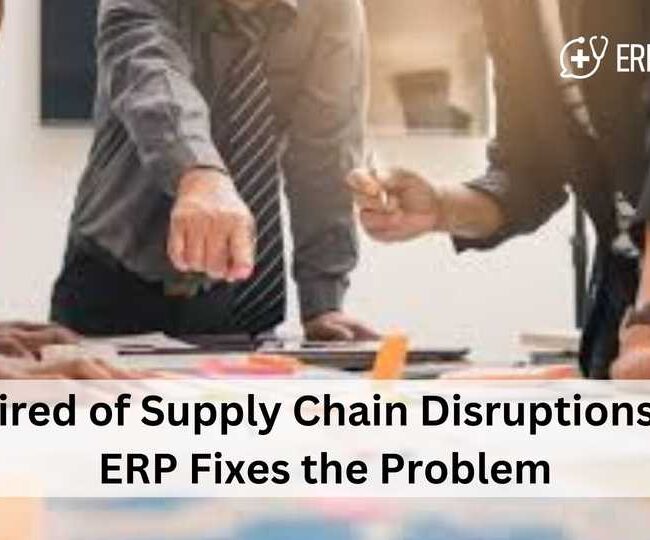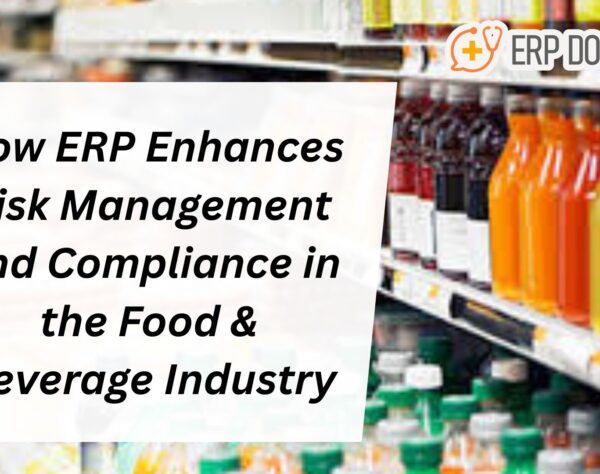
ERP for Ceramics Industry: Improve Product Safety & Traceability

Improve Ceramics Manufacturing with ERP: Ensuring Safety & Traceability
The ceramics industry is known for its precision, artistry, and durability. However, ensuring product safety and traceability remains a significant challenge for manufacturers. An ERP for ceramics industry streamlines operations, enhances product quality control, and ensures compliance with regulatory standards. With ERP implementation for ceramics industry, businesses can track raw materials, production processes, and final distribution, reducing risks and improving transparency.
Why Product Safety and Traceability Matter
In the ceramics industry, defective products or lack of traceability can lead to compliance violations, recalls, and financial losses. Manufacturers must ensure that their products meet industry safety regulations while keeping a clear audit trail for raw materials and finished goods. ERP solutions for ceramics industry provide real-time data tracking and reporting, reducing errors and improving accountability.
How ERP Enhances Product Safety
- Quality Control Automation – ERP software enables automated quality checks at every stage, from raw material sourcing to finished goods inspection.
- Compliance Management – ERP systems integrate industry-specific regulations, ensuring manufacturers meet safety standards and certifications.
- Production Monitoring – Real-time data on kiln temperatures, raw material compositions, and production timelines minimizes defects.
Ensuring Traceability with ERP
- Raw Material Tracking – ERP records details of raw material sources, ensuring manufacturers use high-quality, compliant materials.
- Batch & Lot Tracking – Enables tracking of each batch, providing full visibility from production to distribution.
- Recall Management – In case of a defect, ERP helps identify affected batches quickly and efficiently, minimizing damage to brand reputation.
- Supply Chain Integration – ERP ensures seamless coordination between suppliers, manufacturers, and distributors, reducing errors in deliveries and production.
Benefits of ERP Implementation for the Ceramics Industry
- Enhanced product safety with automated quality checks.
- Regulatory compliance with built-in safety and environmental standards.
- Real-time production tracking to reduce defects and increase efficiency.
- Improved customer confidence by ensuring high-quality, traceable products.
- Cost savings by reducing wastage and optimizing material usage.
Choosing the Right ERP for Ceramics Manufacturing
To maximize the benefits, businesses should select ERP solutions for ceramics industry that offer:
- Scalability to adapt to business growth.
- Customization for unique manufacturing processes.
- Cloud-based accessibility for real-time monitoring.
- Integration capabilities with existing production and supply chain systems.
Implementing an ERP for ceramics industry is a game-changer for improving product safety and traceability. By integrating quality control, compliance, and real-time tracking, manufacturers can enhance efficiency while meeting industry regulations. Investing in ERP implementation for ceramics industry not only ensures customer satisfaction but also boosts profitability and long-term sustainability.
FAQs About ERP for the Ceramics Industry
1. What is ERP, and how does it help the ceramics industry?
ERP (Enterprise Resource Planning) is software that helps ceramics manufacturers manage production, inventory, quality control, and compliance. It improves efficiency and ensures product safety and traceability.
2. How does ERP improve product safety in ceramics manufacturing?
ERP automates quality checks, tracks raw materials, and ensures compliance with industry regulations, reducing errors and improving product safety.
3. Why is traceability important in ceramics manufacturing?
Traceability helps track raw materials, production batches, and final products. It ensures quality, helps with recalls if needed, and improves customer trust.
4. Can ERP help ceramics manufacturers follow industry regulations?
Yes, ERP systems integrate compliance features, keeping records of safety standards, certifications, and audits, making it easier to meet regulatory requirements.
5. How do I choose the right ERP for my ceramics business?
Look for an ERP that offers quality control automation, batch tracking, regulatory compliance, and seamless integration with existing processes to enhance efficiency and safety.
Are you ready to optimize your ceramics manufacturing process? Discover how ERP solutions can transform your business today!







